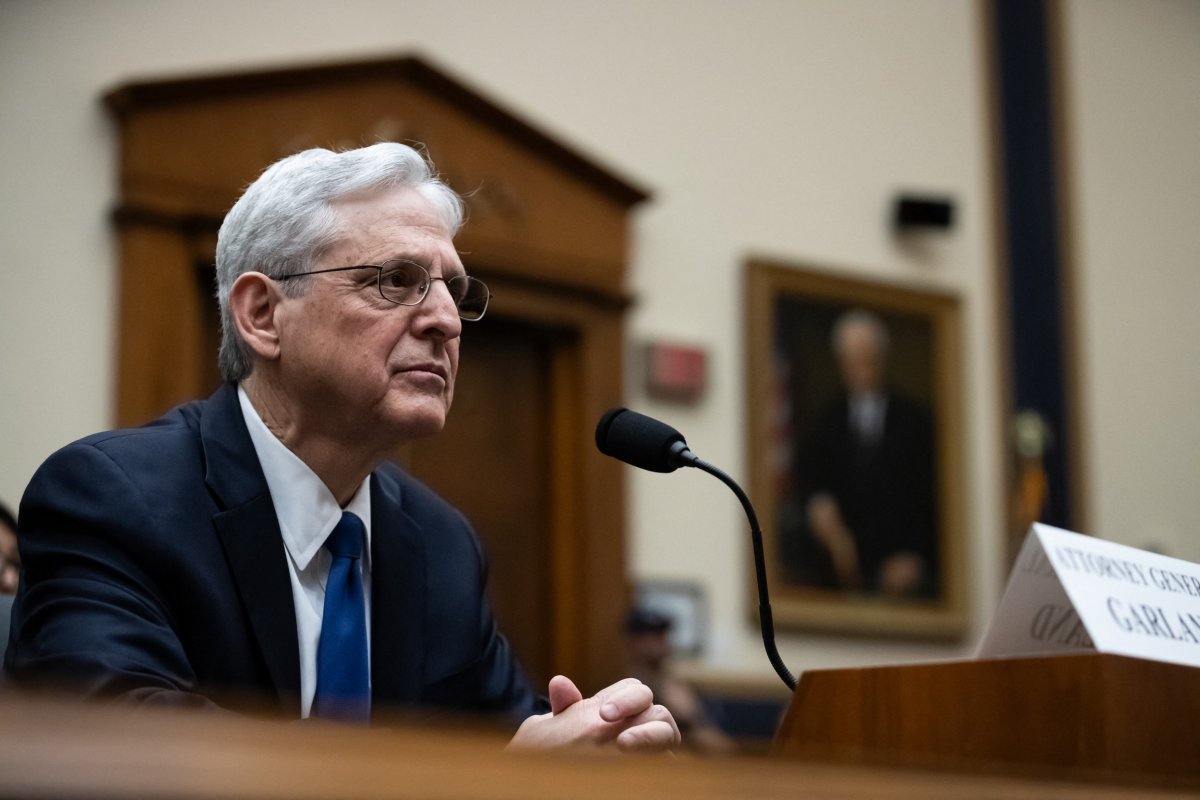On Wednesday, the House of Representatives voted to hold Attorney General Merrick Garland in contempt of Congress for refusing to turn over audio recordings of President Joe Biden’s interviews with former special counsel Robert Hur. These interviews were part of Hur’s investigation into Biden’s handling of classified material, which concluded without charges being brought against the President.
The vote, which was 216 to 207, saw one Republican, Rep. Dave Joyce of Ohio, join Democrats in opposing the resolution. This marks a significant development in a protracted dispute between House Republicans and the executive branch, which escalated after President Biden asserted executive privilege over the recordings.
In a statement following the vote, Garland expressed disappointment, stating, “This House of Representatives has turned a serious congressional authority into a partisan weapon,” and emphasized the need to protect the Justice Department’s investigations and uphold the separation of powers.
With the contempt resolution passed, House Speaker Mike Johnson will certify the report to the United States attorney for the District of Columbia. This certification mandates the US attorney to present the matter to a grand jury, though the Justice Department will ultimately decide whether to prosecute.
This action against Garland builds on Republican allegations that the Justice Department has been weaponized against conservatives, particularly following former President Donald Trump’s conviction in New York for falsifying business records. House Republicans argue that the audio recordings are essential for their impeachment inquiry into President Biden, which has faced challenges and remains uncertain in its outcome.
House Majority Leader Steve Scalise expressed confidence in securing the necessary votes for the contempt resolution, despite some internal concerns among Republicans about the move. Ultimately, the vote proceeded as planned.
Garland, in an op-ed, maintained his stance against what he described as “baseless, personal and dangerous” attacks, reinforcing his commitment to the Justice Department’s integrity.
The conflict over the audio recordings began when Republican-led committees subpoenaed the Justice Department for transcripts, documents, and audio files related to Hur’s investigation. While the department provided transcripts and other materials, it withheld the audio recordings, citing privacy concerns and the potential impact on future cooperation from witnesses.
Republicans argue that the audio recordings offer critical information that transcripts alone cannot provide, particularly in understanding the nuances of Biden’s responses regarding his handling of classified information. They contend that the Justice Department must fully comply with their subpoenas to enable thorough oversight.
House Oversight Chairman James Comer emphasized the necessity of complete compliance with congressional subpoenas, asserting that the executive branch is not above legislative scrutiny.
The Biden administration has questioned the Republicans’ motives, suggesting that the demand for the audio recordings is politically driven. White House Counsel Edward Siskel accused Republicans of intending to distort the recordings for partisan purposes, while DOJ Assistant Attorney General Carlos Uriarte argued that the transcripts should suffice for the committees’ inquiries.
The special counsel report, which highlighted Biden’s age and memory, has become a point of contention as Republicans use these aspects to challenge the President ahead of the upcoming election.
In response to the contempt vote, Democrats criticized their Republican colleagues for what they view as an unwarranted pursuit. Rep. Jamie Raskin of Maryland stated that there was no legitimate basis for holding Garland in contempt, while Rep. Jerry Nadler of New York accused Republicans of acting in service of Trump’s interests rather than justice.
As this issue continues to unfold, it underscores the ongoing tension between the legislative and executive branches, particularly in matters involving high-stakes political investigations.


You must be logged in to post a comment Login